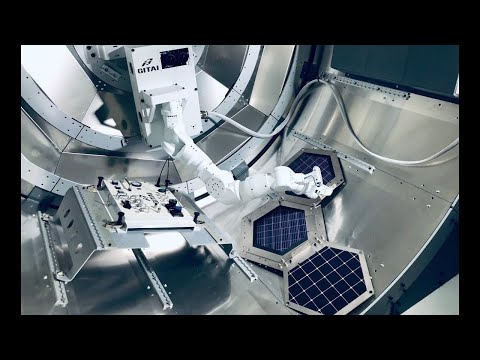
Breaking News
 Windows 10 is DEAD in 2025? -- Here's How I Run It SAFELY Forever (No Updates)
Windows 10 is DEAD in 2025? -- Here's How I Run It SAFELY Forever (No Updates)
 GENIUS ACT TRIGGERED: The Biggest BANK RUN in History is COMING – Prepare NOW
GENIUS ACT TRIGGERED: The Biggest BANK RUN in History is COMING – Prepare NOW
 European Billionaires Funneled $2 Billion into NGO Network to Fund Anti-Trump Protest Machine
European Billionaires Funneled $2 Billion into NGO Network to Fund Anti-Trump Protest Machine
 Japan Confirms Over 600,000 Citizens Killed by COVID mRNA 'Vaccines'
Japan Confirms Over 600,000 Citizens Killed by COVID mRNA 'Vaccines'
Top Tech News
 HUGE 32kWh LiFePO4 DIY Battery w/ 628Ah Cells! 90 Minute Build
HUGE 32kWh LiFePO4 DIY Battery w/ 628Ah Cells! 90 Minute Build
 What Has Bitcoin Become 17 Years After Satoshi Nakamoto Published The Whitepaper?
What Has Bitcoin Become 17 Years After Satoshi Nakamoto Published The Whitepaper?
 Japan just injected artificial blood into a human. No blood type needed. No refrigeration.
Japan just injected artificial blood into a human. No blood type needed. No refrigeration.
 The 6 Best LLM Tools To Run Models Locally
The 6 Best LLM Tools To Run Models Locally
 Testing My First Sodium-Ion Solar Battery
Testing My First Sodium-Ion Solar Battery
 A man once paralyzed from the waist down now stands on his own, not with machines or wires,...
A man once paralyzed from the waist down now stands on his own, not with machines or wires,...
 Review: Thumb-sized thermal camera turns your phone into a smart tool
Review: Thumb-sized thermal camera turns your phone into a smart tool
 Army To Bring Nuclear Microreactors To Its Bases By 2028
Army To Bring Nuclear Microreactors To Its Bases By 2028
 Nissan Says It's On Track For Solid-State Batteries That Double EV Range By 2028
Nissan Says It's On Track For Solid-State Batteries That Double EV Range By 2028
JAXA teams with GITAI for world-first private sector space robotics demo

The new agreement under the JAXA Space Innovation through Partnership and Co-creation (J-SPARC) initiative aims to demonstrate the potential for robots to automate of the processing of specific tasks aboard the International Space Station (ISS).
Robotics is altering many aspects of our lives in many fields and one where it is particularly attractive is in the exploration and exploitation of space. Ironically, the great strides made in manned spaceflight since the first Vostok mission lifted off in 1961 have shown that not only is supporting astronauts in orbit challenging and expensive, there are also many tasks, like microgravity experiments, where the human touch isn't the best choice.
These tasks often require complex, precise, and subtle movements that demand either a highly specialized and expensive bespoke apparatus or a robot. The GITAI/JAXA agreement will work on ways that robots can handle maintenance, scientific experiments, and other specific tasks aboard the ISS.
Currently, GITAI is conducting autonomous control and automation in a ground mock-up of the Japanese Experiment Module "Kibo." In the fiscal year 2021, a robotic arm will be used in the BISHOP Airlock Module on the ISS to demonstrate its ability to carry out various tasks, including operating switches, plugging in and unplugging cables, and assembling panels.

 Carbon based computers that run on iron
Carbon based computers that run on iron

